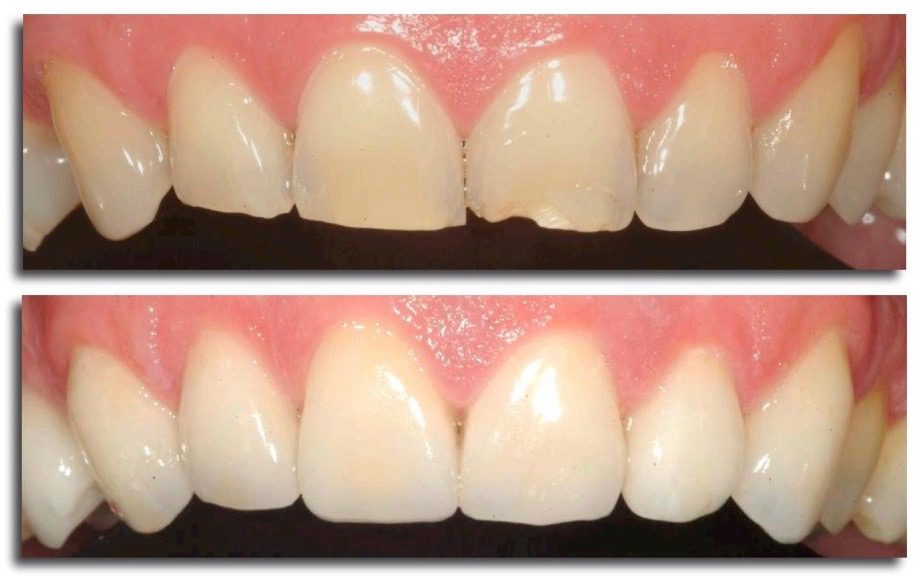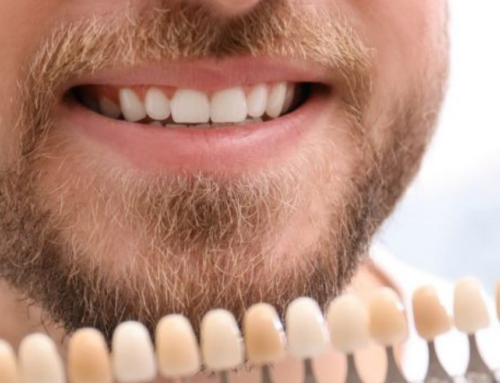Are Dental Veneers Right for Me?
Lots of people are looking for dental treatments that can make their teeth look better and help them finally enjoy that sparkling smile they’ve always wanted. To achieve this, there are several different treatment and techniques that a patient can undergo. It’s important to find the one that fits your budget and will help you reach your goals without causing too much pain, discomfort or disruption to your life.
One option is veneers. These thin shells help teeth appear straight and are undetectable as artificial. They can help someone feel confident and look great. If you’re considering veneers, you should be aware of what you’re signing up for.
Common Dental Veneer Questions:
- When are they Used?
- What do they Cost?
- How Long they Last?
- How to Care for Them?
Let’s get you acquainted with the benefits of veneers to help you make the right decision for your oral health and your smile. We’ll breakdown how veneers work and what you should do to keep them healthy and intact. Additionally, we’ll try to shed some light on the potential costs to give you an idea of what to expect.
What are Veneers?
Veneers are a rather simple procedure that involves attaching thin shells to the front of teeth. They are usually made of either porcelain or composite resin with porcelain. Both materials are incapable of staining or even slightly changing colour. Furthermore, many patients choose veneers to hide unsightly gaps in their teeth.
Most porcelain veneers take at least two appointments for a dentist to attach them to a patient’s teeth whereas composite resin may only take one. With respect to durability, though, porcelain tends to last longer.
The process to attach veneers varies based on the type but it is generally painless. In many ways, it is similar to bonding treatment. For porcelain veneers, a patient might have to undergo a local anesthetic to freeze the area of their mouth. Your dentist will remove a thin layer of enamel to provide enough room for the veneers to be applied. Then, your dentist must create a mold of your teeth so that the veneers can be customized to their exact shape.
While the veneers are being created, temporary ones may be placed on the surface of your teeth to fill in any portion that was removed during the first stage. You must be careful with temporary veneers as they do not have the same durability and strength as permanent veneers. They can loosen very easily while eating or during cleaning. The last stage involves replacing the temporary veneers with the custom ones. To do this, your dentist will cover the designated teeth with a mild chemical to make the texture more susceptible to veneers. One-by-one, the veneers are attached to teeth with the use of a composite resin cement.
For composite resin, a dentist will usually apply a mild chemical to the front of teeth that have been designated for the veneers. This chemical makes the surface of those teeth a bit rough in texture. What this does is create an environment where composite resin can adhere to enamel.
Patients can work with their dentist to find a shade of the composite resin that will blend in with the surrounding teeth. Composite resin is then applied in layers and a light is used to solidify each layer. Once the last layer is successfully placed on teeth, a dentist will shape then polish them until they are completely in place.
Am I a Candidates for Veneers?
Like most dental procedures, including the cosmetic ones, not everyone is a candidate for treatment. Your dentist could recommend an alternative approach if:
- A tooth or teeth is experiencing decay, or some type of gum disease is present. If either is the case, you may need to treat those issues before getting veneers.
- A patient excessively clenches or grinds their teeth. This habit could chip the veneers and should be dealt with prior to treatment.
- A tooth or teeth has a reduced amount of enamel. This will prevent a veneer from properly sticking.
- A portion of a tooth is missing, your dentist might recommend getting a crown placed first.
If you’re interested in veneers, you should arrange a consultation with your dentist to determine if you are a good candidate and if this is the best method to get the results you want. Often, treatments are chosen based on what the patient hopes to achieve and the current state of their teeth.
When Veneers are Recommended
A dentist might consider recommending veneers for:
- Chipped teeth
- Broken teeth
- Teeth that are so discoloured that cosmetic whitening is not an option.
- Teeth that are too small.
- Teeth that are pointy or unusually shaped.
Veneers are not the right option to fix just any dental issue. They serve a distinct purpose and should only be used as part of a treatment plan in a thoughtful and strategic way. Your dentist will determine if veneers are right for you and also craft a plan to ensure they are applied properly.
What Do Veneers Cost?
Because veneers are categorized as cosmetic, they are typically not covered by most dental plans or group benefit plans. This means you must pay out of your own pocket.
Cost depends on the specifics of your case and the clinic where you chose to undergo this procedure. Factors that determine price can include the number of visits, the number of veneers required, if you need additional work like crowns performed beforehand and what material will be used.
To give you an idea, traditional veneers can cost between $500 and $2500. Again, it’s best to sit down with your dentist to review fees and costs and to discuss any payment options they offer.
Veneers are a worthy investment that will pay dividends for your self-confidence that could impact both your professional and social life.
How Long do Veneers Last?
This also depends on several factors, but traditional veneers can last up to 15 years. No prep veneers, which is characterized as being placed in a patient’s mouth without first treating the surface of teeth, can last approximately 5-7 years. Most agree that traditional veneers are often the more cost-effective option in the long run for most people.
Be mindful that how long veneers last is determined by how well you take care of them.
How to Care for Veneers?
You need to care for veneers as you would your natural teeth. This means brushing and flossing daily and attending regular dental checkups. These checkups are also important so that the dentist can make sure they are sealed with the teeth. If not, stains or cavities can develop underneath.
Keep in mind that since a dentist must remove enamel, veneers are not reversible. If they chip or lose adhesiveness, they must be replaced immediately. While you can treat and use them like natural teeth, it’s best to avoid biting into hard food like ice cubes or certain candies.
Come Talk to Us About Veneers
At Georgian Dental®, our aim is to help our patients achieve optimal oral health and the type of smile that will help them feel their most confident every day.
If you are ready to take the step toward enjoying straight teeth and a beautiful smile, then it’s time to sit down with a member of our team to discuss veneers and other options that can help you.
Book your free no-obligation consultation and learn how Georgian Dental® can help get your smile in style.
Appointment Request
If you’re interested in any of our procedures, and would like to meet with one of our dentists to discuss options, costs and get additional information, complete this short form and we’ll give you a call to arrange for a no-obligation appointment at our Barrie clinic.









